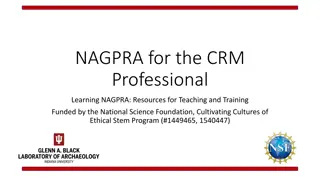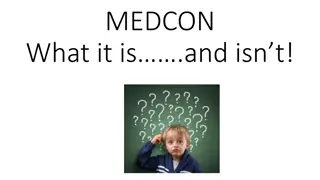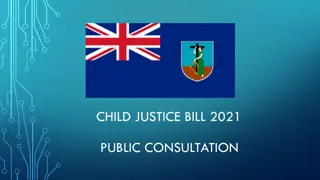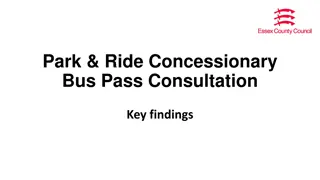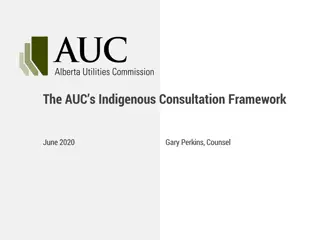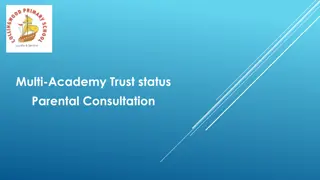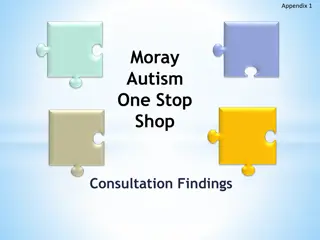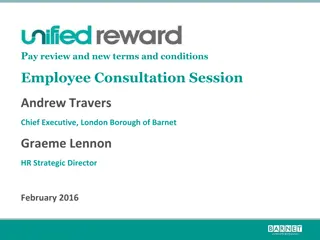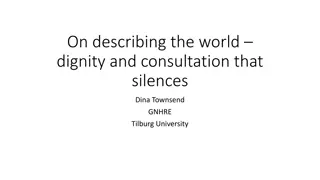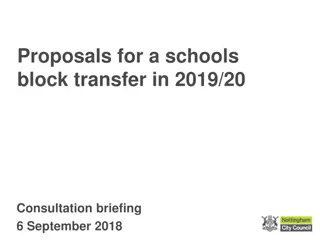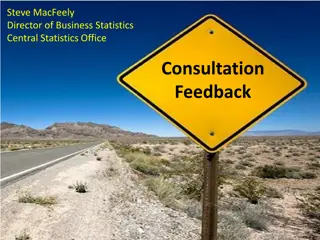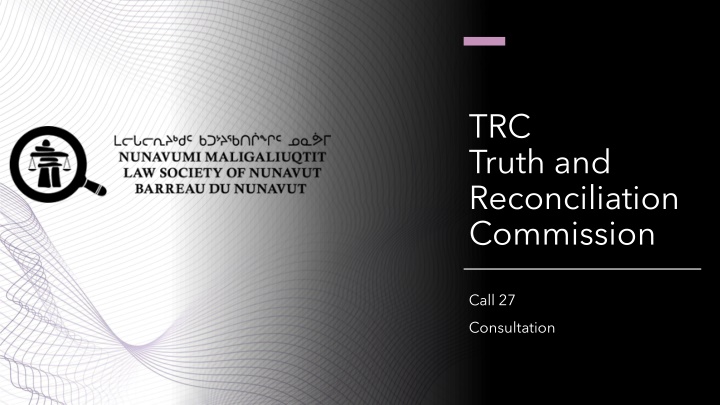
FLSC Model Code Amendments in Response to TRC Call to Action 27
The Federation of Law Societies of Canada is reviewing and amending its Model Code of Professional Conduct in response to Call to Action 27 from the Truth and Reconciliation Commission. This call urges cultural competency training for lawyers on Indigenous history, treaties, and rights. The proposed amendments focus on building knowledge and communication skills for competent legal services. Find out more about the key elements and ongoing consultations in this important initiative.
Download Presentation

Please find below an Image/Link to download the presentation.
The content on the website is provided AS IS for your information and personal use only. It may not be sold, licensed, or shared on other websites without obtaining consent from the author. If you encounter any issues during the download, it is possible that the publisher has removed the file from their server.
You are allowed to download the files provided on this website for personal or commercial use, subject to the condition that they are used lawfully. All files are the property of their respective owners.
The content on the website is provided AS IS for your information and personal use only. It may not be sold, licensed, or shared on other websites without obtaining consent from the author.
E N D
Presentation Transcript
TRC Truth and Reconciliation Commission Call 27 Consultation
Federation of Law Societies of Canada Model Code A Model Code of Professional Conduct was developed by the FLSC and adopted by Council in 2009 Intent is to synchronize as much as possible the ethical and professional obligations of legal professionals in Canada. 13/14 law societies have adopted the Model Code or have taken steps to ensure their P/T rules are consistent with it. The Model Code is overseen by a Standing Committee that is responsible for ensuring it is responsive to, and reflective of, currently legal practice and ethics.
FLSC and TRC For the last few years, the FLSC Model Code standing committee has undertaken an examination of the Model Code to determine what changes are needed in response to the TRC. The FLSC Model standing committee spent considerable time informing itself of the elements of (and underlying) Call to Action 27. Members attended educational programming, spoke to external experts, and engaged with Indigenous legal practitioners and academics on a range of topics. They also heard early on that they needed to engage with a broad range of Indigenous individual and groups prior to drafting any proposed amendments. 5. They went through a preliminary round of engagement with over 20 Indigenous individuals and groups, seeking advice on how to approach changes to the Model Code. The input led them to draft proposed amendments that are now part of a larger public consultation, which includes the law societies.
Call to Action 27 Call to Action 27 comes from the work of the Truth and Reconciliation Commission of Canada. The work of the Commission led to 94 Calls to Action. Number 27 directly addresses the FLSC, stating: We call upon the Federation of Law Societies of Canada to ensure that lawyers receive appropriate cultural competency training, which includes the history and legacy of residential schools, the United Nations Declaration on the Rights of Indigenous Peoples, Treaties and Aboriginal rights, Indigenous law, and Aboriginal Crown relations. This will require skills- based training in intercultural competency, conflict resolution, human rights, and anti-racism. This Call to Action is quite broad in its coverage of topics about which lawyers should receive training and education, as they relate to Indigenous Peoples. The FLSC has determined that it is appropriate for the Model Code to be reviewed and amended, in light of Call to Action 27.
Key Elements of FLSC proposals 1. The Model Code sets out the ethical rules for legal professionals; not how the requisite knowledge and skills will be acquired. Legal education providers have the discretion to make that determination. 2. The proposed amendments avoided using specific terms like intercultural competency because they were seen as problematic, and instead focuses on duties that relate to this concept. 3. Four concepts informing the amendments have received broad support to date: 1. The focus should be on building knowledge and communication skills in order to provide competent legal services. 2. A baseline level of knowledge and communication skills should be required of all legal professionals, regardless of whether or not they provide services to Indigenous clients. Although this does not mean lawyers can or should hold themselves out as experts in Indigenous law. 3. A higher level of knowledge and communication should be required for practitioners who engage directly with Indigenous clients or other parties. 4. Changes to the Code to improve client service and enhance public protection are also warranted beyond the scope of CTA 27.
An Integrated Approach 8. The proposed amendments infuse ethical and professional obligations for legal professionals relating to the CTA 27 throughout the Code (as opposed to a standalone section). You can see the proposed changes in relation to existing rules, including: 1. The Preface 2. Integrity 3. Competence (where most changes are proposed) 4. Quality of service 5. The lawyer as advocate 6. Duties of principal 7. Discrimination
Proposed Amendments - Specifics Draft amendments (red text): https://flsc.ca/wp- content/uploads/2024/02/Consultation-Report-Final-FEB- 2024.pdf
The Law Society of Nunavut The LSN is now conducting its own consultation on the amendments proposed by the FLSC. We are inviting your comments. The consultation report is available on the FLSC website the deadline for input is November 29th.
New Rules Proposed There are also new rules and commentary proposed. The Model Code already applies to the interactions between legal professionals and clients or others (which includes Indigenous peoples) new rules and revisions proposed highlight where the standing committee regarded it necessary to elaborate on how they specifically apply to Indigenous peoples.
Your Feedback is sought Please discuss and consider the following: 1. the appropriateness of the proposed amendments, 2. The sufficiency of the proposed amendments are there additional/ different considerations for Inuit persons/ Nunavut as a territory? 3.Do you have any additional comments or feedback to provide? Please detail.
Thank you! Questions/ Comments? Please contact Rebecca Jaremko rmjaremko@lawsociety.nu.ca


